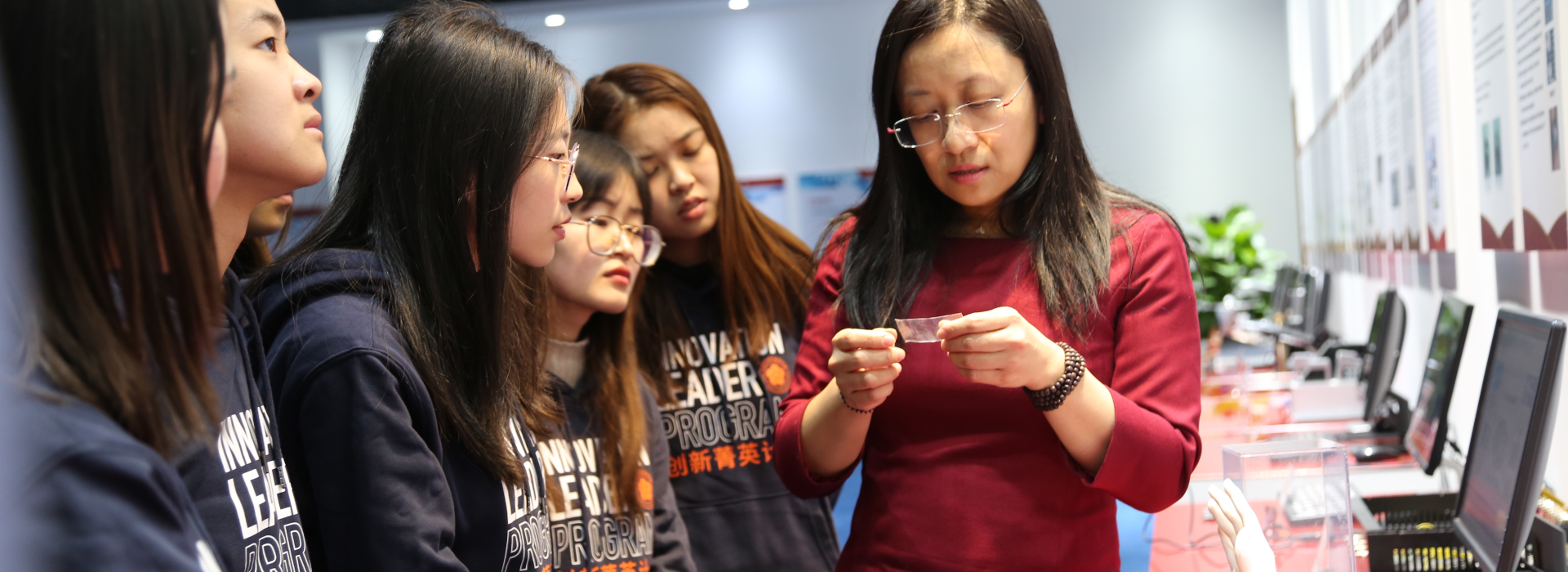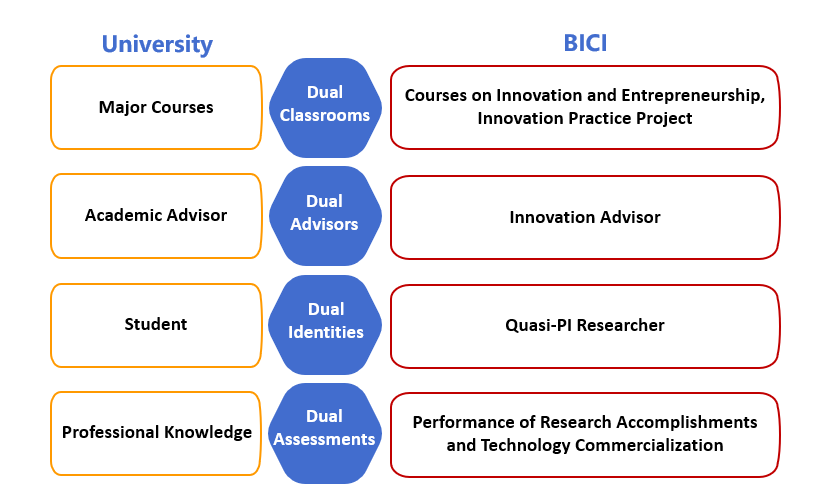
The “Innovation Leader Program” is a postgraduate training program for innovation and entrepreneurship jointly implemented by the Beijing Institute of Collaborative Innovation (BICI) and several world-renowned universities. The initial stages of the program have achieved the goal of developing professional innovation and entrepreneurs by breaking down the barriers between nations, universities, and knowledge.

Double Classrooms: ILP Students study their first year at a university and complete the majority of their course work as required for their degree. In years two to three for masters students (or two to four for doctoral students) , students take innovation and entrepreneurship courses across different disciplines, along with practical training in research institutes based on real-world projects.
Double Assessments: Both the student’s professional theory knowledge and their scientific research and development performance on the project are assessed. Upon fulfilling all degree and project requirements, a degree from university and a BICI certificate will be awarded.
Double Identities: ILP students acquire knowledge and skills as students, but also participate in real scientific research and transformation or entrepreneurial projects at the institute as “innovation and entrepreneurship trainees”. The trainees are eligible for scholarships, project funding, and a share of the proceeds from scientific research results.
Double Mentors: Academic mentors are university professors responsible for guiding theoretical study, while innovation mentors are senior researchers, industry experts, and management personnel responsible for guiding research projects and entrepreneurship training. The mentors work together to jointly guide the thesis.
Each professional program includes three modules: Basic Professional Theory, Innovation and Entrepreneurship Methods, and Practical Innovation and Entrepreneurship. The content of the Basic Professional Theory courses varies with the student discipline, the Innovation and Entrepreneurship Methods courses are all the same, and the Practical Innovation and Entrepreneurship courses are carried out by establishing an interdisciplinary team in accordance with the needs of the project.
Made up of compulsory and optional courses, the module primarily teaches the basic theories and methods of relevant disciplines, and has been jointly designed by partner universities and the research institutes.
The courses of this module are mandatory for all disciplines. The module was designed by the institute to teach methods and skills for identifying problems and integrating knowledge, and consists of three courses:
Product Management and Design: Teaches the fundamental principals and methods of product management and design to improve the product planning and implementation capacity of students.
Technical Analysis: Systematically introduces the latest representative technical achievements in various fields, analyzes the characteristics of and application potential of each achievement, and opens up technical horizons.
Business Model Innovation: Teaches the fundamental principles of business models and methods of technology commercialization such as project management, investment management, and project planning.
The courses of this module are mandatory for all disciplines. The module conducts scientific research and entrepreneurship training based on real institute projects to improve the practical skills of students, and consists of the following:
Planning-Every student shall participate in the evaluation and demonstration of institute research or entrepreneurship projects, or independently propose topics and carry out demonstrations.
Realization- Every student shall independently establish a project to carry out scientific research or entrepreneurship training (or participate in an institute research or entrepreneurial team) to undertake specific professional tasks with a certain level of difficulty.
A program jointly established by the Beijing Institute of Collaborative Innovation (BICI) and world-class universities to cultivate students with innovation and entrepreneurial abilities.
